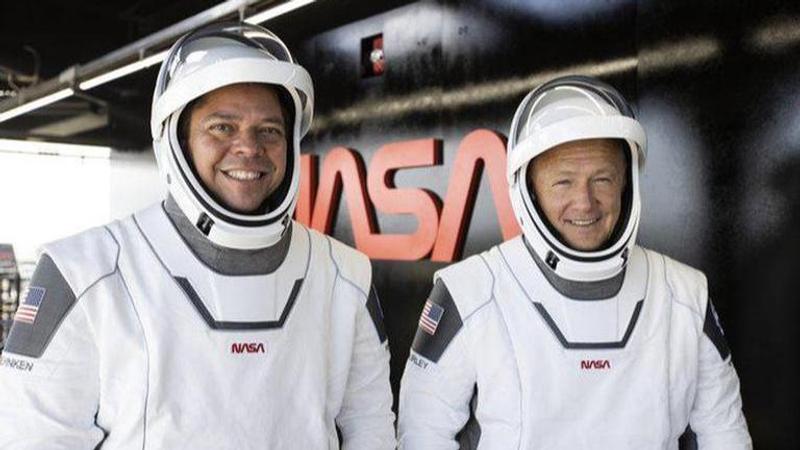Published 20:33 IST, May 25th 2020
NASA calculates risk ahead of SpaceX launch on May 27, astronauts 'comfortable' with it
SpaceX, the private American aerospace company founded by Elon Musk, is preparing to launch its Demo-2 mission on May 27 from Kennedy Space Center in Florida.

SpaceX, the private American aerospace company founded by Elon Musk, is preparing to launch its Demo-2 mission on May 27 from Kennedy Space Center in Florida. According to the risk calculated by NASA and SpaceX, there is a 1-in-276 chance that the test flight could turn fatal and a 1-in-60 chance that it could encounter some minor issues that would fail the mission but the crew would be safe. NASA reportedly said that the astronauts, Bob Behnken and Doug Hurley, were informed about the risk factor of the test flight but the duo said that they were “really comfortable” with the odds.
NASA Administrator Jim Bridenstine on May 23 announced that SpaceX has been given a “go-ahead” for the historic Crew Dragon Demo-2 mission set to launch the coming week. With this mission, NASA will launch its first crewed mission from US soil in almost 10 years (since 2011). This is also the first time NASA has allowed a private company like Elon Musk's SpaceX, to run the entire show.
The test flight of Crew Dragon, planned at 2.03pm IST, will resurrect human spaceflight capability of the United States. The backup launch opportunities are available on May 30 at 12.52am IST, and May 31 at 12.30am IST. It is the final major test for SpaceX’s human spaceflight system to be certified by NASA for operational crew missions to and from the International Space Station.
“Our teams are scouring and thinking of every single risk that's out there, and we have worked our butt off to buy down the ones we know of, and we'll continue to look - and continue to buy them down - until we bring them home,” said Kathy Lueders, who manages the Commercial Crew Program for NASA, during the press briefing.
Automatic docking and manoeuvring
After entering the orbit, the crew and SpaceX mission control will test the environmental control and life support systems, the manoeuvring thrusters, and thermal control systems among other things to check whether the spacecraft is performing as expected. It will perform a series of phasing manoeuvres to position itself for rendezvous and docking with the International Space Station.
While Crew Dragon is designed to perform the manoeuvres and docking on its own, astronauts piloting the spacecraft and the ISS will be monitoring it and can take control will if deemed necessary. After the successful conclusion of the test flight mission, the spacecraft will undock and depart the Space Station along with the two astronauts to return to Earth.
(Image: Twitter / @SpaceX)
Updated 20:33 IST, May 25th 2020



